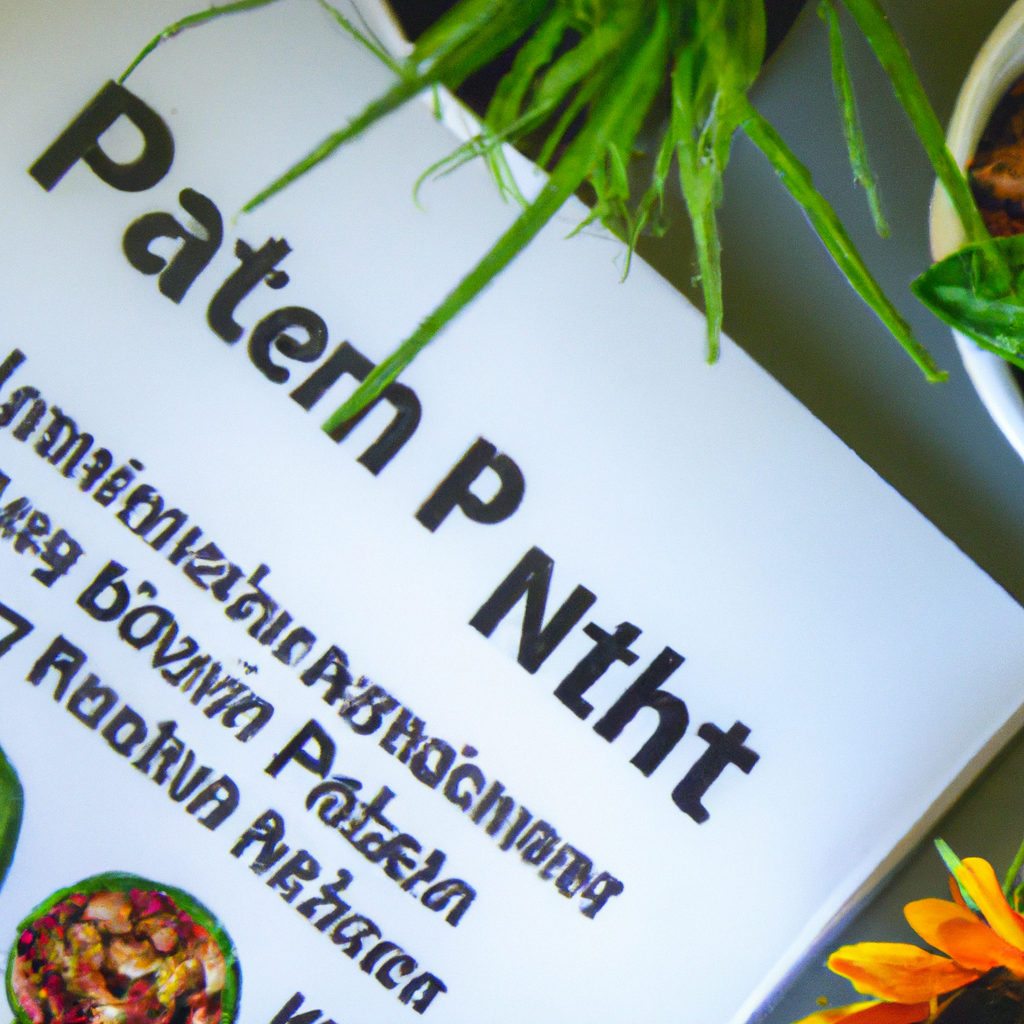When it comes to reaching peak physical and mental health, our diet plays an incredibly important role. As it turns out, incorporating more plant-based meals into your diet can be extremely beneficial in many areas of life, from boosting your overall energy and mood to improving your performance and stamina. Plant-based nutrition is no longer considered solely a trend; in fact, it is embraced by many health experts as a powerful approach to achieving optimal wellness. Let’s explore the wonderful world of plant-based nutrition and discover how easy and satisfying it is to embrace the power of plants in our diets!
1. Unlocking the Nutritional Power of Plants
It’s no secret that plant-based diets are becoming increasingly popular as people seek out healthier and more sustainable meals. Not only are they good for our environment, but they can also offer a wealth of nutritional benefits. From key vitamins and minerals to cancer-fighting antioxidants, there is something remarkably powerful about the nutrients found in many types of plant foods.
However, with so many different plants, fruits, and veggies available, it can be hard to know which ones are most nutritional and which you should incorporate into your diet. Here are some of the top plant-based powerhouses that can help you unlock the nutritious potential of plants.
- Leafy greens: Loaded with vitamins A, K, and C, leafy greens are some of the most incredibly nutrient-dense foods around. Examples include kale, spinach, bok choy, collard greens, and Swiss chard.
- Cruciferous vegetables: Cruciferous veggies like broccoli, cauliflower, Brussels sprouts, and cabbage are packed with cancer-fighting nutrients like Vitamin C, Vitamin K, and folate.
- Berries: Tart and sweet, berries add a punch of flavor to any meal. They’re full of antioxidants like flavonoids, which can help to fight inflammation and keep your heart healthy.
- Legumes: A perfect source of plant-based protein, legumes are an excellent way to get essential amino acids into your diet. Examples include soy foods, lentils, and beans.
- Nuts and seeds: Whether you’re sprinkling them on salads or using them to make nut butter, nuts and seeds are chock-full of essential vitamins and minerals like magnesium, zinc, and Vitamin E.
By incorporating these powerhouses into your diet, you can unlock the optimum nutritional potential of plants. You can also make all of your meals plant-based by exploring unique recipes, adding plant-based proteins like tofu or tempeh, and using herbs and spices to add flavor.
2. Harnessing Plant-Based Fuel for Maximum Health Benefits
Adding fuel to your diet in the form of plants can have serious health benefits. Here are some of the many advantages of using plants for maximum nutritional value:
- Lower risk of heart disease: Studies have linked plant-based diets to lower levels of “bad” cholesterol, lower blood pressure, and other factors that contribute to heart health.
- Reduce weight: Plant-based diets tend to be low in calories and high in fiber, which can help you stay fuller longer and control your overall calorie intake.
- Enhance digestion: A plant-based diet can help improve digestion, as it is high in fiber, which helps keep your gut healthy and free of blemishes.
- Minimize inflammation: Eating more anti-inflammatory foods found in plants can help reduce inflammation in your body, reducing your risk of chronic diseases such as type 2 diabetes, certain cancers, and Alzheimer’s.
- Strengthen bones: Plant-based foods contain more magnesium and other nutrients that help support strong bones.
Eating a variety of plant-based foods is important so that you get the maximum amount of nutrition and benefits from them. There are several types of plant-based foods, such as fruits, vegetables, legumes, grains, nuts, and seeds. In addition, you can also get plant-based proteins, such as tofu and tempeh, to provide your body with the building blocks it needs for a long and healthy life.
The key to maximizing the health benefits of plant-based foods is to eat them in a balanced way. Eating too much of any one item can lead to nutritional deficiencies, so it’s important to include a variety of plant-based foods in your diet. You should also make sure that they make up the majority of your meals. Make sure to read labels as some plant-based foods may contain added sugars or unhealthy oils.
By making plant-based foods a regular part of your diet, you can enjoy their many health benefits. Eating a variety of plant-based foods can help you get the essential nutrients and minerals your body needs to stay healthy and strong.
3. Creative Ways to Incorporate Plant-Based Nutrition into Your Diet
From savory main dishes to delicious snacks and desserts, there are plenty of ! Here are a few to get you started:
- Go for Soups and Stews. Warm soups and stews are an excellent way to incorporate plenty of vegetables and plant-based proteins into your diet. With an array of flavor options, you can get creative and combine multiple ingredients to create unique dishes!
- Try Tofu Cashew Tacos. Who said tacos have to be the same boring fare? Spice up your diet with tofu cashew tacos! Simply prepare black beans, tofu, adobo sauce, and cashew cream and spread it in a soft tortilla. Sprinkle some cheese over the top and enjoy!
- Add Plant-Powered Salads. Salads are a delicious way to get essential vitamins and minerals while still enjoying a colorful and flavorful plate. Try a balsamic-roasted vegetable salad or a vegan Caesar salad.
- Incorporate Green Smoothies. When you’re in need of a quick and energizing snack, reach out for a green smoothie. Blend your favorite fruits and vegetables together, and you’ll be sure to receive a tasty treat.
With a little creativity, you can easily incorporate plant-based nutrition into your meal plan! All you need is a few staple ingredients, a bit of ingenuity, and you can create delicious meals and snacks for the whole family.
4. Exploring the Dietary Advantages of Plant-Based Diets
It’s becoming increasingly common for people to ditch the all-meat diet in favour of a plant-based diet. While the reasons for this differ from person to person, there are a number of dietary advantages to consuming a more plant-based diet. Here are just a few of those advantages:
- Reduce Saturated Fats: Plant-based diets are generally low in unhealthy saturated fats, which can help to reduce the risk of heart disease and other health issues.
- More Fibre: Plant-based foods tend to be much higher in fibre when compared to animal products, and fibre is essential for a properly functioning digestion.
- Increased Phytonutrients: Following a plant-based diet often leads to higher levels of antioxidants and other beneficial plant-based compounds that are essential for promoting a healthy body.
Moreover, a plant-based diet can also help to reduce inflammation. Inflammation has been linked to various diseases and illnesses, and eating more plant-based proteins and other foods can help to lower inflammation by providing rich sources of vitamins and minerals.
Finally, the phytochemicals found in plant-based foods can help to protect against various forms of cancer. Many of these phytochemicals also offer cardiovascular benefits, due to their ability to reduce blood pressure and cholesterol levels.
A plant-based diet doesn’t mean that you have to ditch meat altogether, but rather to reduce your consumption of it in favour of healthier alternatives such as plant proteins. This can help you reap the many dietary advantages of a plant-based diet that are otherwise hard to get from any other type of diet.
Plant-based nutrition is a powerful force of nutrition, with far-reaching benefits for individuals, communities and the environment. Whether you are looking to jumpstart new healthy habits, reduce your environmental footprint, or just to try something new, embracing the power of plants in your diet can be one of the most rewarding changes you can make. There is never a bad time to start cultivating better eating habits; so go ahead and get started!



